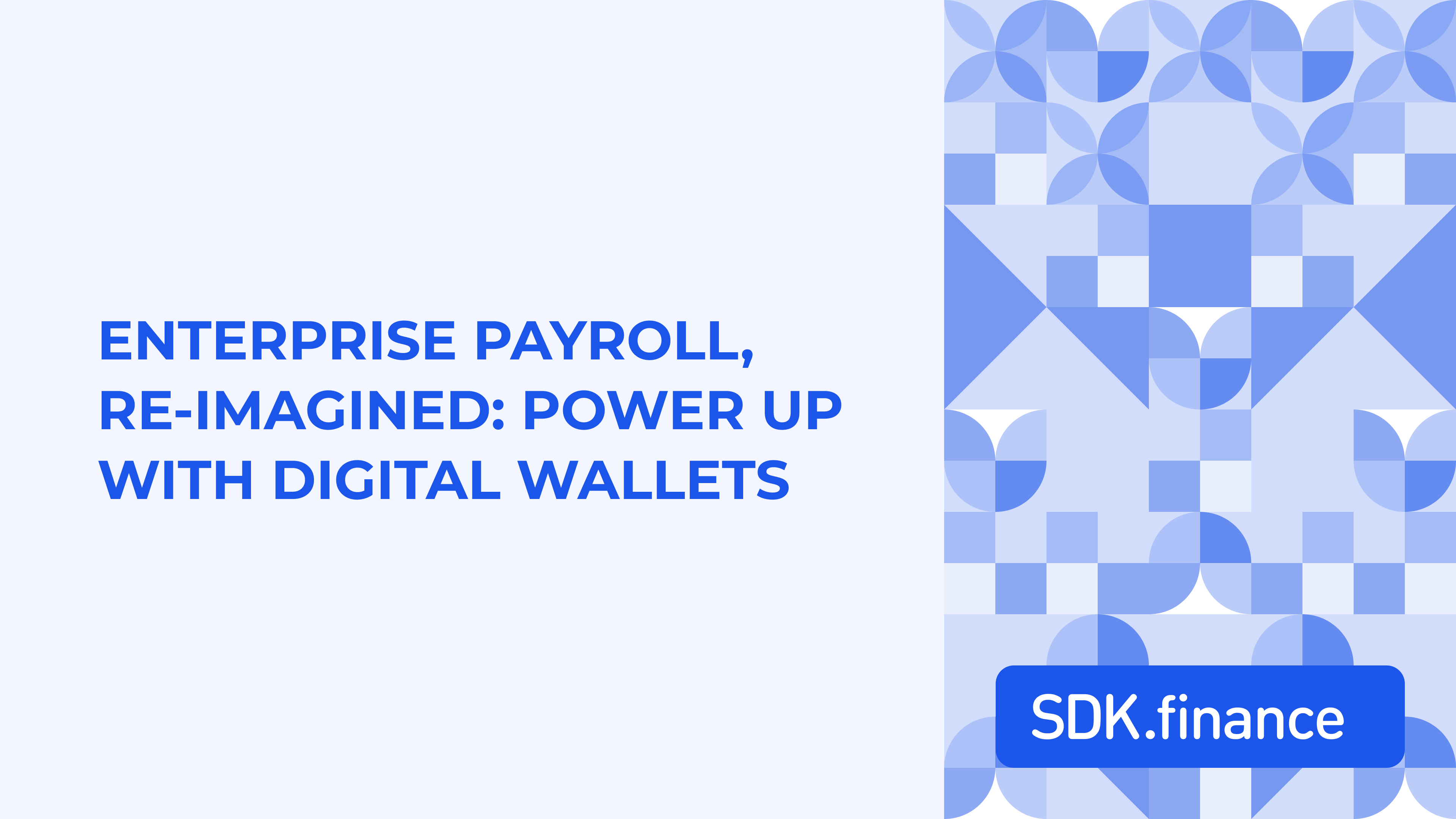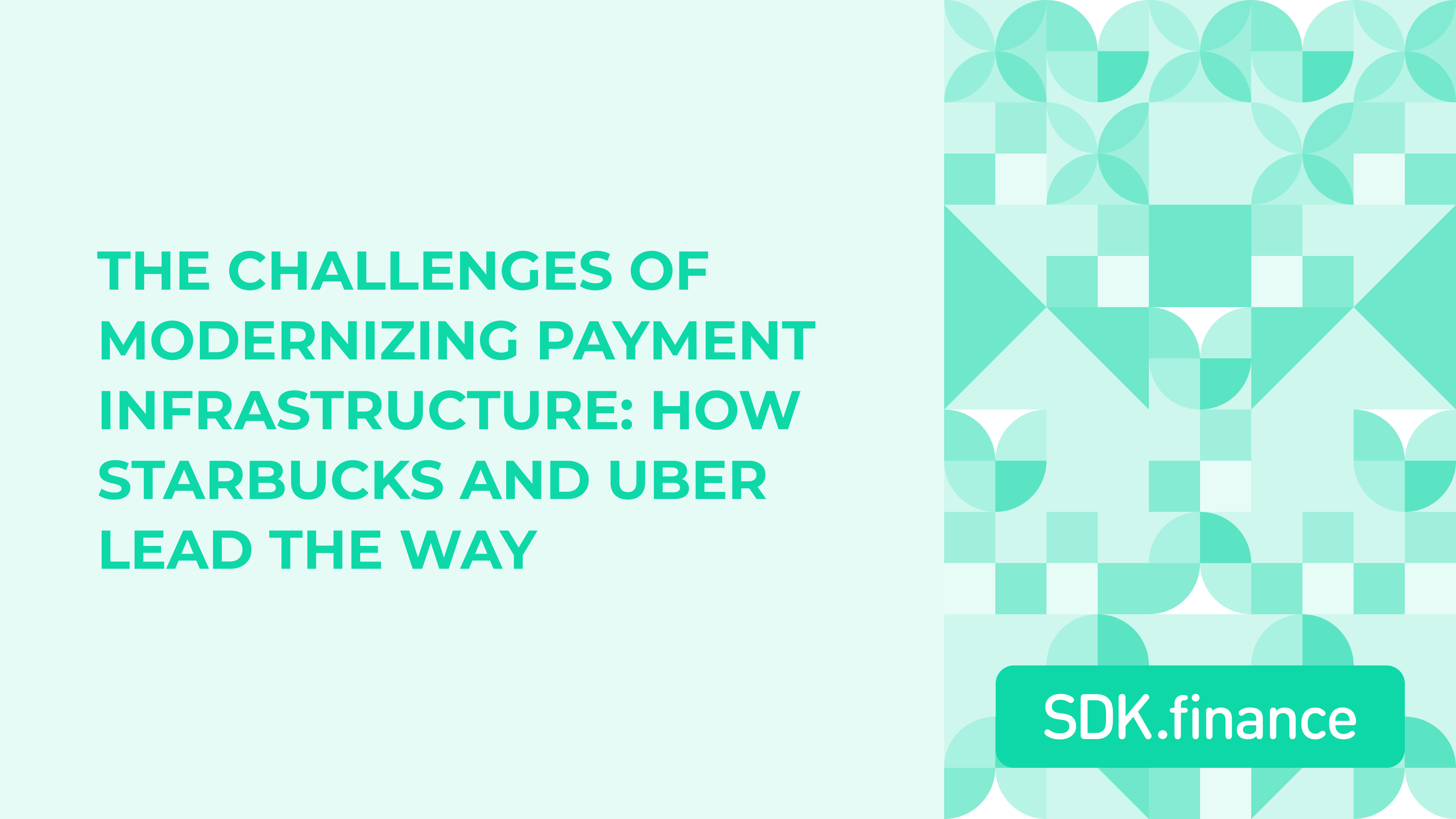Payroll management is becoming increasingly difficult, with 52% of employees facing delays in receiving their wages. High transaction fees, compliance issues, and managing multiple currencies create inefficiencies that affect both businesses and employees. As employee expectations shift toward instant, hassle-free payments, modernizing payroll software is essential.
Digital wallets, specifically internal wallets designed for payroll, offer an effective solution. They provide instant, secure payments, easy integration with banks and payment gateways, multi-currency support, and cost reductions while ensuring compliance. Let’s explore how internal wallets can transform payroll for enterprises.
From traditional digital wallets to internal wallets for payroll
Digital wallets, also known as e-wallets, provide a convenient way to make payments, transfer funds, and manage finances without the need for physical cards or cash. They provide a faster payroll process, unlike traditional banking systems that often cause delays, especially with cross-border payments.
What is enterprise payroll?
Enterprise payroll is used by large organizations to manage employee compensation. This includes calculating wages, deducting taxes and benefits, and ensuring that payments are made to employees on time, whether they are salaried, hourly, or contractual workers.
Enterprise payroll systems often need to address complex requirements, such as compliance with labor laws, calculating overtime, handling multi-currency payments for global teams, integrating with benefits and tax systems, and managing high transaction volumes.
Why traditional digital wallets are not enough for payroll?
While traditional digital wallets allow employees to access funds quickly, they are not specifically designed for managing enterprise-level payroll systems. These wallets often require businesses to maintain separate accounts for each employee or work with multiple financial intermediaries, leading to inefficiencies and increased complexity.
Internal wallets, on the other hand, offer a centralized solution that simplifies payroll processes, enabling enterprises to manage employee wages more efficiently. With features such as real-time transactions, multi-currency support, and seamless integration with existing banking systems and payment gateways, internal wallets are a more suitable option for enterprise payroll management.
Now let’s dive into the broader benefits of integrating these wallets into enterprise payroll systems.
Benefits of integrating wallets in enterprise payroll systems
Integrating wallets into enterprise payroll systems offers many benefits, improving operational efficiency and employee experience. Here’s an overview of the advantages:
Streamlined payments
Internal wallets allow employers to manage and process employee payments in a centralized digital environment. This reduces the need for multiple bank transactions and the related administrative overhead. As a result, time-consuming tasks such as reconciling bank statements are eliminated, enabling faster and more efficient payroll processing.
Instant paydays
Internal wallets allow for instant salary transfers to employees, ensuring that payments are made on time without delays. Unlike traditional banking systems, where payments can take several days, internal wallets enable real-time transfers, providing employees with immediate access to their wages.
Multi-currency management
By offering multi-currency capabilities, internal wallets help businesses avoid the complexities and extra costs of currency conversion. For multinational organizations, this feature simplifies payroll management across different regions, reducing both administrative burdens and costs.
Automation at work
Automated scheduling features enable businesses to set regular payment dates, while custom commissions and transaction fees can be applied as needed. Payroll administrators can utilize APIs to automate employee payment processing payroll and distribution.
Cutting costs
Traditional bank transfers, especially for cross-border payments, often come with hefty fees, but with wallets, these costs are minimized for transactions inside the system. Enterprises with employees across multiple countries stand to make substantial savings in payroll and HR-related expenses.
Finances in hand
Employees benefit from digital wallets by gaining instant access to their funds and enjoying greater control over their finances. Wallets allow for seamless mobile top-ups, fund transfers, and even easier bill payments.
Everything you need for a speedy and cost-effective start.
Learn moreCompliance and reporting
Compliance is vital in any enterprise payroll software and systems. Integrations with KYC and AML vendors ensure that payments meet legal requirements, while reporting tools aid in audits and enhance transaction transparency, making compliance less cumbersome.
The adoption of digital wallets in enterprise payroll management
As digital transformation continues to reshape industries, the adoption of digital wallets in enterprise payroll is on the rise. According to a report by PwC, 42% of large organizations are already using digital wallets for payroll, a number expected to double by 2025.
Industries paving the way for wallet-based payroll solutions
Gig economy
In the gig economy, companies like Uber, TaskRabbit, and Upwork are leading the charge in using digital wallets to pay freelancers and contractors. For instance, Uber’s Instant Pay feature allows drivers to access their earnings instantly after completing a ride, bypassing traditional banking delays. Similarly, TaskRabbit uses digital wallets to ensure its network of contractors is paid immediately upon task completion.
E-commerce
E-commerce giants such as Amazon and Shopify are leveraging digital wallets not just for customer transactions but for employee payroll too. For example, Amazon has implemented a payment solution called Amazon Flex that allows delivery drivers to receive their wages through digital wallets, enabling them to access their earnings in real time.
Technology startups
Agile tech startups have been early adopters of digital wallets, incorporating them as part of their broader financial infrastructure. Zapier, a popular automation platform, uses digital wallets to pay remote workers and contractors instantly, simplifying cross-border payments and enhancing operational agility for large businesses.
Healthcare
The healthcare sector, especially during crises like the COVID-19 pandemic, has started adopting digital wallets to ensure timely payments for doctors, nurses, and other healthcare workers. Intermountain Healthcare, for example, implemented digital wallet solutions to provide its staff with faster access to wages during the peak of the pandemic.
SDK.finance: Your customizable payroll payment solution with digital wallets
SDK.finance offers a FinTech Platform designed to revolutionise payroll management. From employee wallets run payroll, to real-time payments, our solution caters to global enterprises, SMEs, and technology businesses, ensuring accuracy, compliance, and operational efficiency.
Our payment system has modular architecture that allows enterprises to integrate wallet functionality or upgrade payroll processes without disrupting current operations. The modular design of accounting software allows enterprises to adapt the system to their specific needs, whether by enhancing payment processing, automating tax calculations, or managing multi-currency payrolls.
Key features of SDK.finance‘s solution:
- Real-time payment processing
- Centrilized funds management
- Employee wallets
- Advanced ledger system
- Seamless API integrations
- Multi-currency management
The SDK.finance Platform supports integrations with third-party services like banking systems, payment gateways, and KYC providers. It provides robust APIs for operations such as wallet top-ups and withdrawals through banks, as well seamless payroll solutions as well as partnerships with vendors like Marqeta and SumSub for card issuance and KYC/AML checks, ensuring seamless payroll and financial processing.
Conclusion
By implementing internal digital wallets, enterprises can benefit from real-time transactions, full employee management, seamless API integrations, and a scalable solution that grows with their needs. Digital wallets offer a future-proof approach to payroll, improving efficiency, reducing costs, and enhancing employee satisfaction—making them an essential tool for modern enterprises looking to streamline their payroll.





